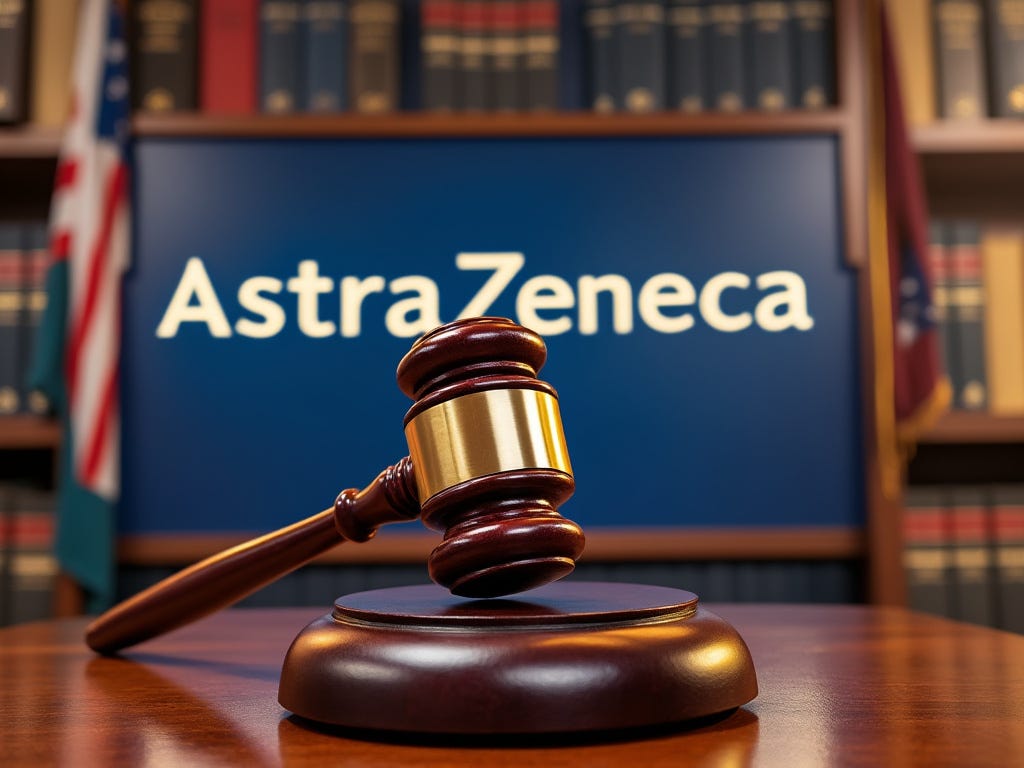Court Ruling Upholds Religious Freedom Over Vaccine Mandate: AstraZeneca's Policy Deemed Discriminatory
Another Freedom Win: Ohio Court Grants Summary Judgment in Favor of Employee, Highlighting the Intersection of Faith and Corporate Policy in the Workplace
In a significant legal development, the United States District Court for the Northern District of Ohio has ruled in favor of Jonathan Bobnar, a former employee of AstraZeneca Pharmaceuticals LP, in a case centered around religious discrimination and failure to accommodate religious beliefs under Title VII of the Civil Rights Act of 1964. This ruling highlights the complexities of balancing workplace policies with individual religious freedoms during the global health crisis.
Case Overview:
Jonathan Bobnar, employed by AstraZeneca as a Biologics Sales Specialist, sought a religious exemption from the company's mandatory COVID-19 vaccination policy, which was introduced in early 2022. Bobnar's objection was based on his deeply held Christian beliefs, asserting that receiving the vaccine would violate his religious convictions about the sanctity of his body as a temple, a principle he supported with scripture.
Legal Arguments:
Prima Facie Case of Discrimination: Bobnar successfully established that he held a sincere religious belief conflicting with the company's mandate, informing his employer of this conflict, and was subsequently discharged for non-compliance. The court found that his objection was rooted in religious principle, not secular concerns, despite AstraZeneca's arguments that his beliefs might constitute an impermissible "blanket privilege."
Undue Hardship: The court ruled that AstraZeneca failed to demonstrate that accommodating Bobnar by allowing him to continue weekly testing, as was allowed before the mandate, would impose an undue hardship. Factors considered included the lack of evidence showing increased health risks or business disruption due to an unvaccinated employee in his role.
Retaliation Claim: Although Bobnar also claimed retaliation for his religious discrimination complaints, the court found no evidence that AstraZeneca knew of these complaints prior to his termination, thus not establishing a causal link between his complaints and his dismissal.
FMLA Claims: Bobnar's claims under the Family and Medical Leave Act (FMLA) for interference and retaliation were dismissed due to insufficient evidence linking his termination or the company's contacts during his leave to his FMLA rights.
Breach of Contract: The court sided with Bobnar on his claim for breach of contract concerning his 2022 Q1 bonus, which he earned but was withheld due to his termination. The ruling stated that his termination for refusing the vaccine, deemed discriminatory, did not qualify as "for cause" under the terms of AstraZeneca's incentive plan.
Implications:
This ruling underscores several key points:
Religious Accommodation: Employers must seriously consider religious accommodation requests, ensuring they do not infringe upon employees' rights without clear justification of undue hardship.
Employee Rights: It reaffirms the protection of religious practices in the workplace, emphasizing that personal religious convictions must be respected unless they demonstrably conflict with the operational necessities of the business.
Legal Precedence: The decision provides a legal benchmark for how courts might interpret similar cases, potentially influencing how companies draft and enforce health and safety policies in the future.
Conclusion:
The court's decision serves as a reminder to employers about the importance of navigating the delicate balance between implementing company-wide policies and respecting individual religious rights. This case not only impacts AstraZeneca but could influence corporate policies across industries, particularly in how they handle religious exemptions from health mandates. For employees, it reinforces the legal avenues available to challenge perceived discrimination based on religious beliefs. As society continues to navigate post-pandemic employment issues, this case might encourage more nuanced discussions on employee rights versus public health imperatives.



I’m sorry. But freedom means not having to take something into my own self JUST BECAUSE I don’t want to. I should not have to provide a reason why you can’t violate my autonomy. Anything else is evil